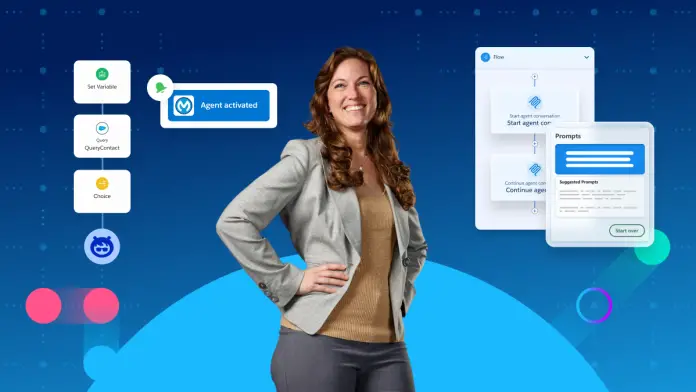Salesforce has unveiled new capabilities for MuleSoft that promise to revolutionize how small businesses can leverage AI through improved integration and orchestration. By enhancing their platform with features such as the Model Context Protocol (MCP) and Agent2Agent (A2A) support, MuleSoft allows for seamless communication between applications and AI agents. This suite of tools not only simplifies the integration process but also enhances developer productivity, providing small business owners with actionable insights to improve operational efficiency.
MuleSoft’s latest offerings enable businesses to transform existing APIs and applications into AI-ready assets with just a few clicks. By facilitating better interaction among various systems, these capabilities are designed to help small companies automate routine tasks, thereby freeing up valuable human resources for more strategic initiatives. The integration of generative AI tools into MuleSoft’s Integrated Developer Environment (IDE) further accelerates project development, allowing teams to build integrations at unprecedented speeds.
One practical application of these new features is in IT issue resolution. For instance, a small business can set up an observability agent that automatically detects critical server errors through platforms like Datadog. Once the error is identified, the system can automatically notify a specialized database triage agent, which can then query a knowledge base for potential fixes. The resolution process can even extend to instructing a remediation agent to restart a service and send a status update via Slack. This workflow can significantly enhance customer experience while enabling IT teams to concentrate on more strategic tasks.
A growing concern for small businesses is the complexity of technology infrastructures as they adopt more AI tools. As noted by Salesforce, integration challenges are among the most significant barriers to effectively harnessing AI, with 95% of IT leaders acknowledging it as a top issue. MuleSoft aims to address these complexities by providing a cohesive framework that enables effective agent orchestration within enterprises.
MuleSoft’s agent orchestration capabilities bring several benefits:
-
Enhanced Communication: With MCP support, businesses can create standardized, bidirectional communication channels between AI agents and external systems. This makes it easier for organizations to manage workflows that involve multiple agents, which is crucial in an increasingly automated environment.
-
Governance Frameworks: The A2A protocol allows for secure and scalable agent-to-agent communication, ensuring that different AI models can collaborate efficiently and effectively. This secure framework is pivotal for businesses that rely on multiple AI tools.
- Developer Efficiency: New generative AI tools integrated into the IDE empower developers to rapidly create integrations using natural language prompts. This efficiency can be particularly beneficial for small teams, where resources are often limited.
However, while the benefits of these capabilities are evident, small business owners should also consider potential challenges. The initial integration process may require specialized knowledge, as transforming existing systems and workflows into agent-ready formats could involve a steep learning curve. Additionally, ensuring robust governance over AI actions will require ongoing oversight to prevent unintended consequences.
As Andrew Comstock, Senior Vice President and General Manager of MuleSoft at Salesforce, stated: “MuleSoft’s agent orchestration marks the next evolution in enterprise integration. It’s how organizations will power truly intelligent, actionable interactions.” This sentiment underscores the importance of adopting such technologies for competitive advantage in an AI-first world.
The perspective from AstraZeneca emphasizes the critical role that MuleSoft plays in building a composable architecture that supports scalable AI processes across departments. Wayne Filin-Matthews, Chief Distinguished Architect at AstraZeneca, noted, “MuleSoft has enabled us to build a composable architecture and data foundation needed to scale AI across AstraZeneca.” This endorsement further validates MuleSoft’s capabilities in fostering strategic partnerships essential for navigating a rapidly evolving landscape.
Greg Beltzer from RBC Wealth Management echoed this sentiment, emphasizing how MuleSoft facilitates a multi-agent AI journey that enhances personalized client interactions. “Our composable foundation, powered by MuleSoft, is key to this,” he remarked.
As small business owners seek to integrate AI into their operations, the new capabilities from MuleSoft offer a promising avenue for enhancing productivity, automating workflows, and ultimately delivering better customer experiences. Embracing these tools can be a vital step towards staying competitive in today’s technology-driven marketplace.
For more details on this announcement, you can visit the original press release here.
Image Via Salesforce



